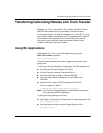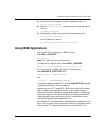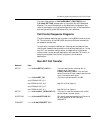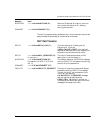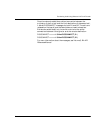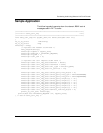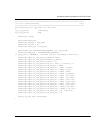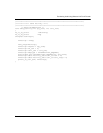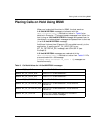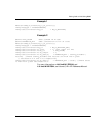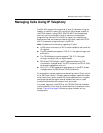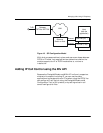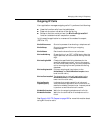
Placing Calls on Hold Using BSMI
November 2009 210
Placing Calls on Hold Using BSMI
When you invoke hold functions in BSMI, the host sends an
L4L3mUNIVERSAL message to the board with the
data.universal.msg_id field set to a value in Table 8, also
detailed in Example 1. The board accepts messages from either the
host (using an L4L3mUNIVERSAL message) and passes them to
the network, or takes network messages and passes them to the host
(in an L3L4mUNIVERSAL message).
Additional Informational Elements (IE) are added normally to the
application. If sending an MT_DL_HOLD_REJ or an
MT_DL_RETRIEVE_REJ message, add a CAUSE IE (see
Example 2).
L3L4mUNIVERSAL messages are received with the
data.universal.msg_id field set to a value from Table 8. If IEs
are contained within the message
(l34msg->data.universal.ie_count > 0), messages are
handled normally.
Table 8. Call Hold Values for L4L3mUNIVERSAL messages
#define MT_DL_HOLD 0x24 //ITU-T Q.932 subclass 8.1
#define MT_DL_HOLD_ACK 0x28 //ITU-T Q.932 subclass 8.1
#define MT_DL_HOLD_REJ 0x30 //ITU-T Q.932 subclass 8.1
#define MT_DL_RETRIEVE 0x31 //ITU-T Q.932 subclass 8.1
#define MT_DL_RETRIEVE_ACK 0x33 //ITU-T Q.932 subclass 8.1, must contain a
CAUSE IE
#define MT_DL_RETRIEVE_REJ 0x37 //ITU-T Q.932 subclass 8.1, must contain a
CAUSE IE
#define MT_DL_STATUS 0x7D //ITU-T Q.931 subclass 84.4, not used in
L4L3mUNIVERSAL messages



